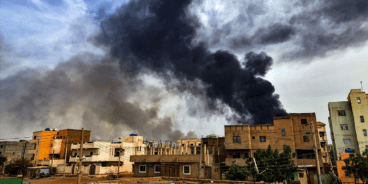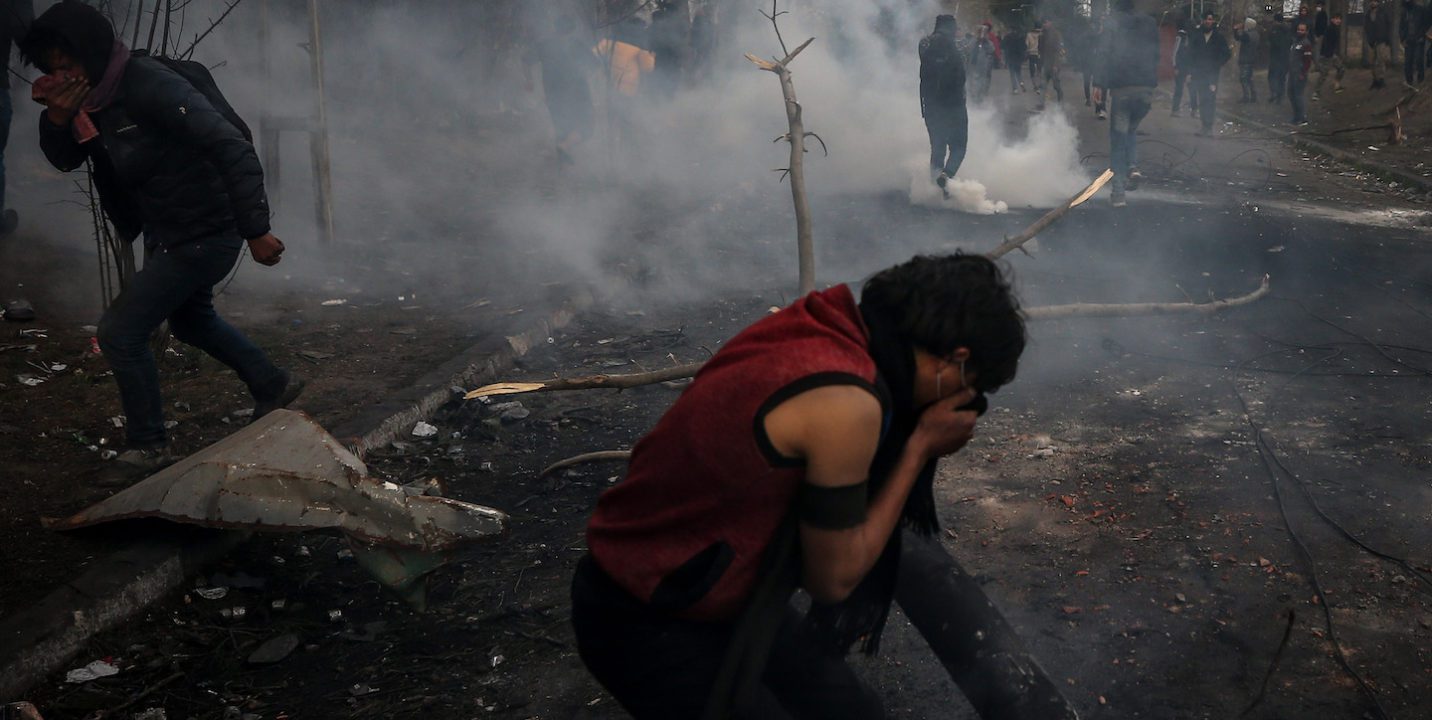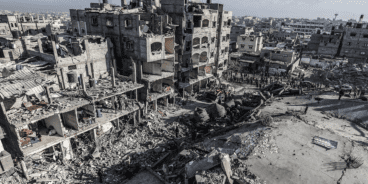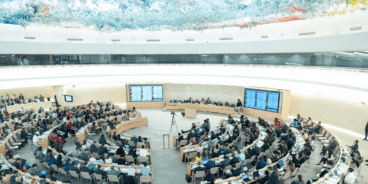

Atrocity Alert No. 194: Greece/Turkey, South Sudan and Afghanistan
Atrocity Alert is a weekly publication by the Global Centre for the Responsibility to Protect highlighting situations where populations are at risk of, or are enduring, mass atrocity crimes.
Attacks on refugees and asylum seekers on Greek border
A severe humanitarian and human rights crisis is unfolding on the border between Greece and Turkey after President Tayyip Erdoğan opened the Turkish border on 29 February to allow thousands of refugees and migrants to try to enter Greece. President Erdoğan accused the European Union (EU) of not upholding its part of a 2016 “burden-sharing” deal aimed at stemming the flow of Syrian refugees, migrants and asylum seekers into Europe. In an attempt to prevent thousands of people from breaching their border, the Greek authorities have used water cannons, tear gas and stun grenades. The Turkish government also deployed approximately one thousand police officers to prevent people from returning to Turkey. Tens of thousands of vulnerable people now face an uncertain future trapped on the border between Turkey and Greece.
Authorities in Greece are also reportedly pushing boats filled with migrants and refugees on the Mediterranean Sea back into Turkish territorial waters. On 2 March video emerged of the Greek coast guard firing into the sea close to a boat full of migrants and refugees. Far-right groups in Germany and France are also calling on their supporters to travel to Greece to join “hunting parties” to patrol the Greek border and “protect the EU.”
Although the specific origin of all the refugees and migrants is unknown, many are fleeing war and atrocities in Syria. Since December 2019 more than 1 million people have been displaced by a Syrian government military offensive in the Idlib region, close to Turkey’s southern border. Turkey is already hosting 3.6 million Syrian refugees.
Several EU leaders expressed support for Greece’s decision to close it borders and suspend asylum applications for one month. The President of the European Commission, Ursula von der Leyen, praised Greece “for being our European aspida [shield] in these times.” The Prime Minister of Croatia, Andrej Plenković, said that, “Greece is now the shield, the real external border of the European Union and the guarantor of stability for the entire European continent.”
According to the UN Refugee Agency, there is no legal basis in either the 1951 UN Refugee Convention or EU Law for suspending asylum applications. While it is commendable that since 2011 the EU has mobilized more than €17 billion to support humanitarian efforts in Syria and neighboring countries, this does not justify measures taken to illegally block desperate asylum seekers who are fleeing persecution, war or atrocities.
It is essential that all EU countries work with Greece and Turkey to redistribute the flow of asylum seekers and uphold the legal and moral principles underpinning the 1951 Refugee Convention. European governments should also prosecute all those using hate speech to promote xenophobia and incite violence against refugees and asylum seekers.
Renewed inter-communal violence in South Sudan challenges transitional government
Over the past two weeks there has been renewed violence between armed fighters from the Lou Nuer and Murle ethnic communities in Jonglei State and the Great Pibor Administrative Area of South Sudan. At least 26,000 people have been displaced by the violence, including approximately 8,000 who have sought shelter in an area adjacent to a site of the UN Mission in South Sudan (UNMISS) in Pibor town.
The Head of UNMISS, David Shearer, reported on 9 March that the fighting has caused significant casualties, several towns have been destroyed, and women and children have been abducted. While there is a history of seasonal inter-communal raids and violence between Nuer, Murle and Dinka communities in parts of South Sudan, recent disputes have been exacerbated by resource pressures caused by flooding in Jonglei earlier this year and the decline of state authority in much of the region.
Meanwhile, on 9 March the UN Human Rights Council-mandated Commission on Human Rights (CoHR) in South Sudan presented its latest report. Yasmin Sooka, Chair of the CoHR, said that “killing, torture, rape, intentional starvation of civilians, intimidation, displacement, enforced disappearances and corruption have become the norm” in South Sudan. The CoHR found that both the government and the armed opposition have used starvation of civilians as a method of warfare, including by looting and destroying harvests and impeding humanitarian assistance. Sexual violence, including gang-rape, sexual mutilation, forced marriage, abduction and sexualized torture, is ongoing and “characterized by a recognizable pattern of terror and subjugation.”
These findings come despite the fact that on 22 February President Salva Kiir and opposition leader Riek Machar formed a Transitional Government of National Unity (TGoNU) as part of the 2018 Revitalized Agreement on the Resolution of the Conflict in the Republic of South Sudan. While the formation of the TGoNU was an important political step, ongoing crimes documented by the CoHR and the recent inter-communal violence demonstrate that civilians continue to face the threat of mass atrocity crimes perpetrated by both state and non-state actors.
Impunity for past atrocities and recurring inter-communal violence endangers the possibility of a lasting peace in South Sudan. During its current session, the Human Rights Council should extend the CoHR, including its mandate to “collect and preserve evidence of, and clarify responsibility for, alleged gross violations and abuses of human rights and related crimes, with a view to ending impunity and ensuring accountability.”
ICC to proceed with atrocity crimes investigation in Afghanistan
On 5 March the Appeals Chamber of the International Criminal Court (ICC) authorized Chief Prosecutor Fatou Bensouda to open an investigation into possible war crimes and crimes against humanity in Afghanistan. This overturns a previous rejection of the Prosecutor’s request by the ICC’s Pre-Trial Chamber.
During the 18-year war in Afghanistan various parties to the conflict have perpetrated targeted attacks on civilians, as well as torture, rape, enforced disappearances and extrajudicial killings. On 20 November 2017 the ICC Prosecutor requested authorization to proceed with an investigation into alleged war crimes and crimes against humanity committed in Afghanistan since May 2003. The Prosecutor determined that alleged crimes committed by parties to the conflict – including the Taliban, Afghan National Security Forces, and the United States (US) armed forces and Central Intelligence Agency – were sufficiently grave to fall within the Court’s jurisdiction, and that no national proceedings had taken place to hold perpetrators accountable.
In response to the Prosecutor’s request, the US government warned that retaliatory action would be taken against ICC officials and cooperating States Parties should the Court attempt to investigate or prosecute US citizens. Taking these threats into account, on 12 April 2019 the Court’s Pre-Trial Chamber concluded that an investigation would not serve the “interests of justice” because of “the complexity and volatility of the political climate.”
The decision of the Appeals Chamber was a reaffirmation of the principle that no perpetrator should be above international law. Chief Prosecutor Bensouda welcomed the Appeals Chamber’s decision saying that, “the many victims of atrocious crimes committed in the context of the conflict in Afghanistan deserve to finally have justice. Today, they are one step closer to that coveted outcome.”
Related Content


Atrocity Alert No. 388: Israel and the Occupied Palestinian Territory, South Sudan and Nicaragua
